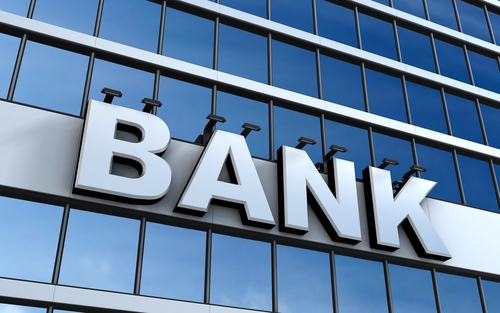Most banks and financial institutions provide account holders with a debit card. These cards are generally used as cash and immediately take money out of your bank account when used. The bank, however, treats each of debit card use as if you had written a check. Just like with a check, a debit card transaction can cause you to overdraw your checking account. Furthermore, your bank may have a policy that results in reordering overdrawn checks to effectively maximize overdraft fees.
Now imagine that on the way to work you filled your car with gas and got a cup of coffee. The total you spent at the gas station and its convenience store was $32. However, they were separate card swipes, one at the pump for $30 and one in the convenience store for $2.
You have opted-in to your institution’s overdraft protection plan – a document of over 100 pages that you barely understood.
Later in the day you realize that your mortgage is due. You hurry on your lunch hour over to the bank that holds your mortgage and pay it with your debit card – you did not have a check with you. But, you realize that your account is about $20 short. If you delay the payment by one day you incur a late fee of $50, but, if you put it on the debit card you will only incur a $35 fee. Right? No, wrong! You will incur $70 in overdraft protection fees.
You see, for your convenience and their profits, banks have the right to forget the order that items are paid in. They reorder them at the end of the day by size of the transaction.
Under this system of reordering of credits to your account the good news is that your mortgage payment earned no late fee – wait, do not become delirious with joy. Your two other purchases cost:
- Gas Purchase $30.00 plus overdraft protection fee $35: total gas purchase $65.00
- Coffee Purchase $2.00 plus overdraft protection fee $35: total coffee purchase $37.00
Your gas station stop in the morning cost you a whopping $102.00.
Crazy, yes – legal, yes – fair, no.
Unfairness stems from two issues.
- Consumers for the most part have no comprehension of the reordering of withdrawals from time based to size based.
- The fee is supposed to reimburse the bank for the expenses incurred in covering your overdrafts. It does not cost them $35 to do this. Banks are using overdraft fees as profit centers. It is estimated that nearly 75 percent of profits for deposit account services come from overdraft fees. Nine percent of customers account for 84 percent of the fees.
You Can Act
The Consumer Protection Finance Bureau is seeking comments on the overdraft practices of banks. Have you had an experience related to reordering overdrawn checks? Submit your thoughts here. The comment period closes on June 29, 2012.
Most banks and financial institutions provide account holders with a debit card. These cards are generally used as cash and immediately take money out of your bank account when used. The bank, however, treats each of debit card use as if you had written a check. Just like with a check, a debit card transaction can cause you to overdraw your checking account. Furthermore, your bank may have a policy that results in reordering overdrawn checks to effectively maximize overdraft fees.
Now imagine that on the way to work you filled your car with gas and got a cup of coffee. The total you spent at the gas station and its convenience store was $32. However, they were separate card swipes, one at the pump for $30 and one in the convenience store for $2.
You have opted-in to your institution’s overdraft protection plan – a document of over 100 pages that you barely understood.
Later in the day you realize that your mortgage is due. You hurry on your lunch hour over to the bank that holds your mortgage and pay it with your debit card – you did not have a check with you. But, you realize that your account is about $20 short. If you delay the payment by one day you incur a late fee of $50, but, if you put it on the debit card you will only incur a $35 fee. Right? No, wrong! You will incur $70 in overdraft protection fees.
You see, for your convenience and their profits, banks have the right to forget the order that items are paid in. They reorder them at the end of the day by size of the transaction.
Under this system of reordering of credits to your account the good news is that your mortgage payment earned no late fee – wait, do not become delirious with joy. Your two other purchases cost:
- Gas Purchase $30.00 plus overdraft protection fee $35: total gas purchase $65.00
- Coffee Purchase $2.00 plus overdraft protection fee $35: total coffee purchase $37.00
Your gas station stop in the morning cost you a whopping $102.00.
Crazy, yes – legal, yes – fair, no.
Unfairness stems from two issues.
- Consumers for the most part have no comprehension of the reordering of withdrawals from time based to size based.
- The fee is supposed to reimburse the bank for the expenses incurred in covering your overdrafts. It does not cost them $35 to do this. Banks are using overdraft fees as profit centers. It is estimated that nearly 75 percent of profits for deposit account services come from overdraft fees. Nine percent of customers account for 84 percent of the fees.
You Can Act
The Consumer Protection Finance Bureau is seeking comments on the overdraft practices of banks. Have you had an experience related to reordering overdrawn checks? Submit your thoughts here. The comment period closes on June 29, 2012.



